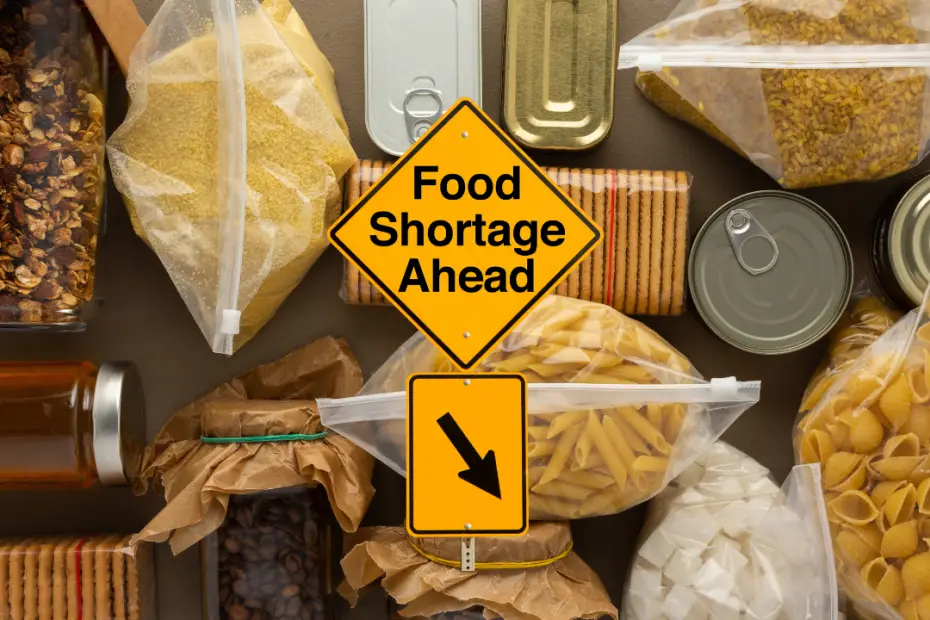In times of crisis, food shortages can happen due to natural disasters, economic downturns, or global supply chain disruptions. Preparing in advance by stocking up on essential, long-lasting foods ensures you and your family have a reliable food supply. Below are the top 10 foods to store in case of a food shortage, optimized for longevity, nutrition, and ease of storage.
1. Rice and Other Grains
Rice, oats, and quinoa are excellent staple foods because they are calorie-dense, non-perishable, and easy to cook. Brown rice, while more nutritious, has a shorter shelf life than white rice. For long-term storage, opt for white rice, which can last up to 30 years if stored properly. Store grains in airtight containers in a cool, dry place to extend their usability.
2. Dried and Canned Beans
Beans are an excellent source of protein, fiber, and essential nutrients. Dried beans have an extended shelf life when stored properly, while canned beans provide convenience and require no soaking. Stock up on varieties like black beans, lentils, and chickpeas.
3. Canned Meat and Fish
Protein is crucial for survival, and canned food like tuna, salmon, chicken, and SPAM luncheon meat are easy to store. Look for options packed in water or oil for added versatility. Rotate your stock regularly to ensure freshness.
4. Powdered and Shelf-Stable Milk
In emergencies, fresh dairy may not be available, making powdered milk or shelf-stable UHT milk a great alternative. These options provide essential nutrients like calcium and vitamin D while having a long shelf life.
5. Peanut Butter and Nut Butters
Rich in protein, healthy fats, and calories, peanut butter is a must-have emergency food. It requires no refrigeration and lasts for months, making it a convenient and energy-dense choice. Opt for natural peanut butter with minimal additives for better nutrition.
6. Dried Fruits and Nuts
Dried fruits like raisins, apricots, and dates offer a natural source of energy and essential vitamins. Nuts such as almonds, walnuts, and cashews provide protein and healthy fats. Store them in vacuum-sealed bags or airtight containers to maintain freshness.
7. Canned Vegetables and Fruits
Fresh produce may become scarce during a food shortage, making canned fruits and vegetables essential. Choose low-sodium and no-sugar-added options for better health benefits. Tomatoes, green beans, corn, and peaches are excellent choices.
8. Whole-Grain Pasta and Noodles
Pasta is a long-lasting, versatile food that pairs well with canned sauces, meats, and vegetables. Whole-grain pasta is a better choice as it provides more fiber and nutrients compared to refined pasta. Store it in a cool, dry place.
9. Cooking Oils and Fats
Oils like olive oil, coconut oil, and vegetable oil are essential for cooking and provide necessary fats for energy. Store them in dark, airtight containers to prevent oxidation and spoilage.
10. Honey and Sugar
Honey is a natural sweetener with an indefinite shelf life, making it a valuable addition to your emergency pantry. Sugar is also important for preserving food and baking, though it should be stored in airtight containers to prevent moisture absorption.
Final Tips for Storing Food During a Shortage
- 🏺 Use Proper Storage: Keep food in airtight containers to prevent moisture, pests, and spoilage.
- 🔄 Rotate Your Stock: Regularly check expiration dates and use older items first.
- 🥩🍞🥑 Diversify Your Stockpile: Include a mix of proteins, carbohydrates, and fats to maintain a balanced diet.
- ⚕️🥜 Consider Special Dietary Needs: If you have allergies or specific health conditions, tailor your food stockpile accordingly.
By preparing in advance with these top 10 foods, you can ensure that you and your family stay nourished during any food shortage or crisis.
